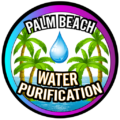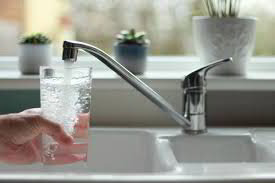It doesn’t matter what city or state you live in, chances are your tap water is just not good to drink. The quality of unfiltered water is just not good and it can affect so much more than you might think.
No one wants to hear about lead contamination in water, high levels of chlorine, bacteria, or too much fluoride. Unfortunately, these are facts that you may not know about and these facts don’t go away when ignored. This article will show just how important a good water filtration system is for your home.
Let’s start with establishing why water is so important.
Over 70% of the human body is made of water, your body won’t function properly without good hydration. Water helps transport metabolized proteins and carbs to the bloodstream. It is also responsible for maintaining optimal body temperature.
We all know the downsides of not drinking enough water. The dangers of dehydration are quite real. One of the most serious complications that can result from dehydration is kidney failure. That doesn’t happen quickly, but it is a reminder of how serious things can get without proper hydration and a good supply of clean water.
Why is the quality of your tap water so important?
When it comes to tap water vs. filtered water, there really is no debate. Your tap water should always be filtered wherever you live no matter what. Leaving your tap water unfiltered and relying on bottled water for drinking and cooking is a just a waste of money, and bottled water in most cases can be just as bad as tap water.
Consider this. The average person uses close to 100 gallons of water per day. Do you want to breathe in chlorine fumes during showers or wash your clothes with heavy sediment water?
Effects of Contaminated Water on Appliances
We do not use water filters just for ourselves. Using a whole house water filtration system helps increase the longevity of all appliances that use water. There are so many contaminants in water that can seriously damage your hot water heater, radiators, refrigerators, washing machine, dish washer, and so on. Anything that uses large quantities of water in your house can be affected by different types of water contamination.
If you want to extend the life of your kitchen and bathroom appliances, then using a proper water filtration system is the way to do it. Do keep in mind that in order to protect your entire household, you will need a Whole House water filtration system. A big box store water filtration pitcher is not going to cut it.
Here are some things that you may not know about your tap water but must hear.
A Lot Can Happen to Your City Water Between the Water Plant and Your House
Despite the fact that water “technically” leaves the plant as “clean:, there are various types of water contamination that can be picked up along the way. Lead is the most obvious one to think of because most of the new plumbing systems are still tied to old pipes.
Of course, that’s not the only contaminant that has a chance of being introduced to the water after it leaves the plant. When pipes break, you can imagine how everything from the ground will enter the water supply and end up in your home. Things insects, radioactive materials, waste, and much more.
Lead in Your Tap Water
Many of the plumbing systems built before 1986 often have lead pipes. This is usually how lead contamination in water occurs. Even today, new safer plumbing systems can have lead contamination if they are connected to old city water systems.
If you have lead contamination in your water you can still shower in it and wash your clothes with it. The problems occur when you ingest it. Lead poisoning can affect the nervous system and red blood cells.
Young children and pregnant women can develop serious problems after drinking water contaminated with lead. This metal has been linked to stunted growth and mental development in children.
Chlorine in Your Tap Water
Among the ugliest types of water contamination is chlorine. As necessary as chlorine is for its disinfectant properties, the reaction of its by-products with organic matter can lead to an increased production of free radicals. The possible side effects of this include liver damage, birth defects, damage to the arteries, and a heightened predisposition to cancer.
One of the best ways to reduce the amount of chlorine by-product contamination is to use a water filtration system. If you just want to reduce the chlorine levels in your drinking water, you can settle for a point of use filter at your kitchen sink. If you want to have clean water running out of every faucet then installing a whole house filtration system is the way to go.
Some Contaminants Aren’t Noticeable
Many people don’t understand the importance of water filtration because their water looks fine, smells fine, and tastes fine.
Among the various types of water pollution are microbes, viruses, heavy metals, and chemicals that don’t affect the tangible properties of your tap water.
You may be risking long-term exposure to dangerous pathogens without even noticing it. In fact, whenever you see reports on how bad the water treatment is in certain communities, you always see them using the words “long-term exposure”.
People just don’t notice until many develop the same symptoms or diseases. Here’s are some contaminants that won’t be detected without laboratory testing.
The Fluoride in Tap Water
Everyone knows that fluoride levels are artificially raised because of the belief that it helps with tooth decay. Some scientists actually lobbied that adding fluoride is especially beneficial for children. So then why is this a bad thing?
Naturally occurring fluoride in water is more than enough and higher levels can be linked to an increase in bone fracture reports. Some studies have also linked fluoride to suppressing the immune system and the pineal gland.
The scariest part of this decade’s old debate is that the study was sponsored by the EPA. After acknowledging the findings publicly, no action was taken. So, if you’re thinking ‘Is there fluoride in my drinking water?’ the answer is a resounding yes. More than likely in higher quantities than you actually need.
Calcium and Magnesium
These two minerals are the two major contributing factors to appliance corrosion. Large deposits of them affect everything from water flow to temperature levels which in turn decrease a household appliances efficiency. Mineral deposits are bad for pretty much all household appliances that use large quantities of water.
Your washing machine, dishwasher, toilet, ice maker, everything can be affected by hardness contamination. Not only will their efficiency drop but not using a water filtration system will also reduce their life.
So why do we use water filters? Because water quality is important throughout your household. This is why whole house filtration systems are more effective than just installing a point of use filter.
Bad as Rain Water
You may think that rain water is a great and eco-friendly way of watering your plants, but did you stop to think about all the water contamination diseases it could lead to? We’ve discussed how the various types of water pollution are a direct result of contaminants seeping through the ground and entering water sources.
Mercury emissions can travel across continents before the metal is again introduced into the ground through rainfall. Since you can’t really track it or even notice it when it rains, what makes you think that rain water is a good solution?
Why do we use water filters on tap water? To make sure we’re not drinking rain water-quality water. The importance of water filtration is not to be underestimated especially knowing how contaminated rain water can be. Many of the microorganisms, pathogens, and heavy metals that come with rain water generally make their way into sources of drinking water too.
All Pollutants Are Not Regulated
If your main concern is: ‘Is there fluoride in my drinking water?’ These facts may upset you. It is estimated that only about a third of known pollutants are regulated by the EPA. How can that be? It is disturbingly simple.
Some accuse the EPA of not working hard enough to regulate more contaminants, but the truth is that new ones pop up all the time. It is impossible to keep track of all the new chemical compounds that are being developed and many new contaminants are introduced into water supplies or water distribution systems.
This is why the discrepancy between regulated and non-regulated contaminants is so big. The EPA can’t issue regulations just as soon as something new is found in the water.
Water Suppliers Don’t Screen Contaminants
Here’s another reason why the importance of water filtration at home should be a no-brainer. Because there are so many unregulated water contaminants, water suppliers and treatment plants aren’t legally obligated to invest in countermeasures.
They only have to account for what the EPA releases as guidelines. Because of this, new contaminants are more likely to make it all the way to your faucet. Again, many pollutants may enter the water after it leaves the plant but there are plenty that already leave with it.
The reason you can assign equal blame to both distributors and the EPA is that the regulatory standards are made to be cost-effective. Because of this, you still have to buy a water filtration system today to make sure no trace amount of arsenic and lead ever gets into your drinking water.
Pipe Breakdowns Affect Your Drinking Water
There’s more than just lead contamination in water when it comes to the transit between the water plant and your home. When a city pipe breaks and this happens more often than you think, it is usually due to corrosion.
When these pipes break down it leads to various types of water pollution from the surrounding environment.
By the time any safety measures take effect there is more than enough time for contaminated soil to make its way into the water that’s coming to your home. This can mean anything from bacteria to salts, heavy metals, and radioactive substances.
You may be thinking that this doesn’t apply to you because the pipes in your area never failed. Unfortunately, it doesn’t have to be the water pipe that bursts. Corrosion happens to waste flushing lines too and anything that bursts out from those pipes gets sucked into the surrounding environment. Eventually, that may also make its way to water sources.
Quality of Your Food
How many people cook with bottled water? Probably very few. Now the question is, why would you cook with water that’s not tasty enough to drink? Most water contaminants that affect taste don’t go away just by boiling the water. Contaminates from the water will leach into your food and now you are eating them instead of drinking them.
Sediments which are a common problem with well water sources can muddy the water and alter its taste and odors. Just because you can avoid drinking unfiltered tap water it doesn’t mean it won’t affect other aspects of your life.
Tap Water Is Bad for Your Pet
Your pet can be just as affected as you by the various types of water pollution in unfiltered tap water. Unclean water is bad for any living mammal, bird, fish, or plant. The only living organisms that benefit from contaminated water are the ones that actually contaminate it.

